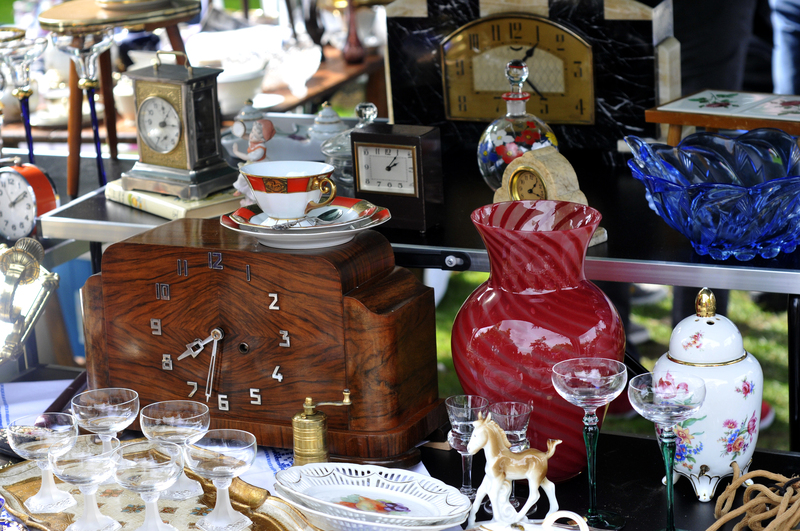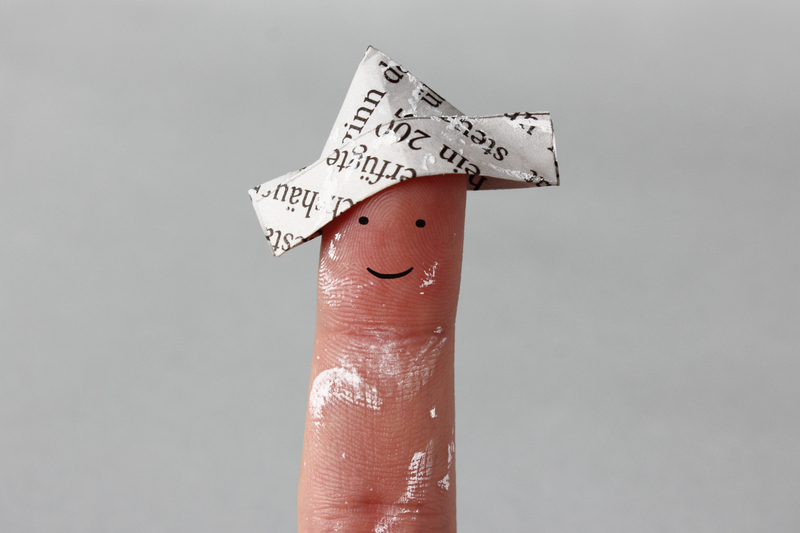Lighten Your Load: The Stress-Relieving Power of De-cluttering
Is your physical space filled with unnecessary belongings? Do you feel overwhelmed by clutter, and wish you could just breathe a little easier? Discover the transformative benefits of organizing your environment. In this comprehensive guide, we'll delve into the stress-relieving power of de-cluttering and how simplifying your surroundings can foster calm, productivity, and happiness.
Why Clutter Stresses Us Out
Clutter isn't just an eyesore--it has a significant impact on our mental and emotional health. But what is it about disorganization that makes us feel uneasy? The link between clutter and stress is both psychological and physiological.
- Visual Overstimulation: Excess items compete for our attention, making it difficult to focus.
- Constant Reminders of Unfinished Tasks: Clutter signals incomplete projects and responsibilities, raising anxiety levels.
- Negative Emotions: Messy spaces can evoke feelings of guilt ("I should tidy up!"), frustration, and embarrassment.
- Reduced Productivity: The more disorganized your space, the harder it is to locate important items or concentrate on tasks.
Scientific studies have linked cluttered environments with increased production of cortisol--the primary stress hormone. De-cluttering isn't just about cleaning; it's about clearing space for peace of mind.

The Mental Health Benefits of De-cluttering
Enhancing Emotional Well-Being
One of the key benefits of de-cluttering is the positive impact on your emotional health. When your surroundings are organized, your mind can relax. The act of letting go of possessions you don't need is liberating and empowering.
- Reduces Anxiety: Fewer possessions lead to fewer distractions and less mental noise.
- Improves Mood: Clean spaces are associated with greater happiness and satisfaction.
- Boosts Confidence: Taking control of your environment fosters a sense of accomplishment.
Supporting Focus and Clarity
De-cluttering your home or workspace allows your brain to concentrate better. Clutter creates competing stimuli, which makes it tougher to perform tasks and process information.
The more organized your surroundings, the less your brain is forced to multitask. This mental clarity makes it easier to make decisions, solve problems, and be productive.
Promoting Relaxation and Rest
Your bedroom should be a sanctuary, but a room packed with clothes, gadgets, and paperwork won't help you relax. De-cluttering promotes relaxation and peaceful sleep, since your senses aren't bombarded by mess and chaos.
A tidy, streamlined space lowers stress levels, facilitating better rest and rejuvenation.
Physical Health Perks of Lightening Your Load
Beyond emotional health, streamlining your environment has tangible benefits for your physical well-being.
- Reduces Allergens: Clutter collects dust, pet dander, and mold--triggering allergies and respiratory problems.
- Prevents Accidents: Fewer items lying around mean less risk of trips and falls, especially for children and seniors.
- Encourages Healthy Habits: Organizing your kitchen can promote healthy eating, while a clear workout area makes it easier to exercise.
How to Start De-cluttering: Steps to Success
Ready to experience the stress-relieving power of de-cluttering? Follow these practical steps to free up space and clear your mind.
Step 1: Set Realistic Goals
Start small to avoid feeling overwhelmed. Pick a single room, drawer, or area and focus only on that space. Goals keep you motivated and ensure steady progress.
- Write down which spaces need attention.
- Estimate how long each area will take.
- Set aside time on your calendar for each session.
Step 2: Sort and Categorize
Use the "Four-Box" method. Label boxes as:
- Keep
- Donate
- Sell
- Trash
Handle every item and decide which box it belongs in. Be honest about what you truly use or love.
Step 3: Let Go Without Guilt
We often keep things due to sentimental attachment or the fear of needing them someday. Remember: Releasing possessions doesn't erase memories. If you haven't used something in the last year, it's likely time to let go.
If parting with items is emotionally difficult, donate them to causes you care about for extra motivation.
Step 4: Organize What Remains
Once you've pared down, organize what's left for easy access and visual appeal:
- Use storage bins and labels for smaller items.
- Arrange frequently used goods within arm's reach.
- Keep countertops and surfaces as clear as possible.
Step 5: Maintain Your New Space
De-cluttering isn't a one-time event--it's an ongoing practice. Establish simple habits to keep your space tidy:
- "One in, one out" rule: When you acquire something new, let an old item go.
- Spend 10-15 minutes daily restoring order.
- Conduct monthly mini-reviews of high-traffic areas.
The Deeper Psychological Impact of Organized Spaces
Why does a tidy environment make such a difference? It's not just about appearances--it's about how we feel and function.
Sense of Control
Daily life can be unpredictable. Cleaning up clutter gives you mastery over your domain. This sense of control reduces helplessness and stress, boosting self-efficacy and resilience.
Space for Mindfulness
A streamlined environment allows you to be more present in the moment. Mindfulness practices are easier to cultivate in clean, organized spaces, with fewer distractions and triggers.
Supporting Positive Habits
An orderly home fosters routines like meal prep, reading, exercising, or meditating--all linked with improved mental health. When your environment is aligned with your goals, achieving them feels more natural and enjoyable.
Common Barriers to De-cluttering (and How to Overcome Them)
Despite the many benefits, clearing clutter can be challenging. Here are some typical obstacles and solutions:
- Emotional Attachment: Ask yourself if items truly enhance your life, or if you're keeping them out of guilt or nostalgia. Remember, letting go honors your growth.
- Fear of Wasting Money: The money spent is already gone--don't continue paying, in space and stress, for things you don't need.
- Overwhelm: Break the task into small, manageable steps. Even five minutes a day adds up!
- Lack of Time: Schedule short sessions or enlist help from friends or family.
How Decluttering Enhances Work, Relationships, and More
Work and Productivity
An organized workspace is directly linked to higher efficiency, clearer thinking, and lower stress. You'll waste less time searching for supplies or documents, freeing up mental energy for important, meaningful tasks.
Relationships and Social Life
Living in clutter can create tension among family members or roommates. By lightening your load, you allow everyone to share a clean and welcoming environment. Hosting becomes easier, and you may even feel more pride sharing your space.
Financial Benefits
De-cluttering can save--and even make--you money. Selling unwanted items puts cash back in your pocket. Organizing paperwork prevents overdue bills or lost checks. Plus, when you know what you have, you avoid duplicate purchases.
Tips for Lasting De-cluttering Success
- Start with Visible Areas: You'll feel immediate progress, boosting motivation.
- Adopt Minimalist Mindsets: Focus on quality over quantity. Choose items that spark joy or serve a real purpose.
- Use Vertical Space: Shelves and wall hooks can help maximize storage without cluttering surfaces.
- Celebrate Small Wins: Reward yourself for each completed area to build positive momentum.
- Involve the Household: When everyone participates, maintenance becomes a group effort.

The Life-Changing Magic of De-cluttering: Real Stories
The stress-relieving power of de-cluttering isn't just theory. Many people have transformed their lives by simplifying their homes and routines:
- *Maria* downsized her closet, reducing decision fatigue and finding more joy every morning.
- *James* cleared his workspace, resulting in a 20% boost in productivity at his job.
- *Aaron and Lily* made decluttering a family affair, strengthening their bond and restoring harmony to their home.
Your transformation can start with a single shelf, drawer, or room. Small, consistent actions lead to major benefits--physically, mentally, and emotionally.
Conclusion: Clear Space, Clear Mind
The evidence is clear: decluttering your space can have a profound impact on your stress levels, health, and happiness. Whether you approach it gradually or dedicate a weekend to a big purge, streamlining your surroundings is a gift to yourself--one that keeps giving every day.
- Enjoy greater peace of mind
- Improve your focus and productivity
- Promote better sleep and relaxation
- Foster harmony at home and work
Are you ready to lighten your load and experience the stress-busting benefits of de-cluttering? Start today--your mind and body will thank you.